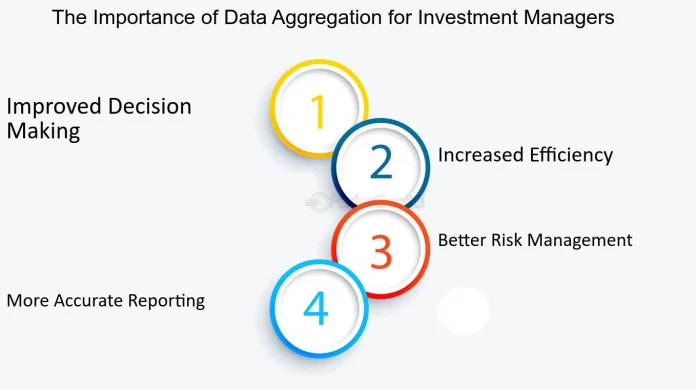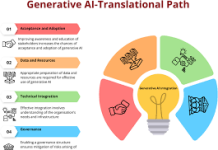In an era where data has become one of the most valuable assets for any business, managing and analyzing vast amounts of information efficiently is crucial. One of the most effective strategies for achieving this is through data aggregation. This process involves gathering data from multiple sources and compiling it into a unified format, making it easier to analyze and derive actionable insights. For companies looking to enhance their operations, data aggregation offers numerous advantages. Here are the top five benefits that data aggregation, a service offered by GroupBWT, can bring to your business.
1. Improved Decision-Making
At the heart of every successful business is the ability to make informed decisions. However, with the sheer volume of data available today, decision-makers can easily become overwhelmed. Data aggregation simplifies this process by consolidating data from various sources into a single, coherent dataset. This consolidated view allows businesses to identify trends, spot opportunities, and make data-driven decisions with greater confidence.
For example, if a company aggregates sales data from multiple regions, it can easily identify which products are performing well and which ones may need additional marketing support. This clarity helps in making strategic decisions that directly impact the bottom line.
2. Enhanced Operational Efficiency
Efficiency is key to maintaining competitiveness in today’s fast-paced business environment. Data aggregation plays a critical role in streamlining business operations by reducing the time and effort required to gather and analyze data. Instead of manually sifting through disparate datasets, employees can access a unified database that provides all the information they need in one place.
This efficiency extends to various departments within a company. For instance, marketing teams can quickly access aggregated customer data to refine their targeting strategies, while finance teams can use aggregated financial data to optimize budgeting and forecasting. By reducing redundancies and automating data collection, companies can allocate their resources more effectively, leading to improved productivity.
3. Better Customer Insights
Understanding your customers is essential for building lasting relationships and delivering personalized experiences. Data aggregation allows businesses to compile customer data from multiple touchpoints, such as social media, customer service interactions, and purchase histories. This comprehensive view of the customer enables companies to gain deeper insights into their preferences, behaviors, and needs.
With these insights, businesses can tailor their products, services, and marketing strategies to better meet customer expectations. For example, an e-commerce company might use aggregated data to identify purchasing patterns and offer personalized product recommendations, enhancing the customer experience and increasing loyalty. GroupBWT helps businesses achieve these insights with tailored data aggregation solutions.
4. Increased Agility and Responsiveness
In today’s dynamic business landscape, the ability to respond quickly to changes is crucial. Data aggregation enhances a company’s agility by providing real-time access to critical data. This allows businesses to quickly adapt to market changes, customer demands, and emerging trends.
For example, if a sudden shift in consumer behavior is detected, a company can swiftly adjust its strategy to capitalize on the new trend. The ability to respond rapidly not only helps in seizing opportunities but also in mitigating risks, ensuring that the business remains resilient and competitive.
5. Cost Savings
Finally, one of the most tangible benefits of data aggregation is the potential for cost savings. By streamlining data collection and analysis processes, businesses can reduce the time and resources spent on these activities. This efficiency leads to lower operational costs and allows companies to invest in other areas of the business that drive growth.
Moreover, data aggregation reduces the likelihood of errors that can occur when data is manually processed from multiple sources. Fewer errors mean fewer costly mistakes and a more accurate understanding of business performance.
Conclusion
Data aggregation is more than just a technical process—it’s a strategic tool that can significantly enhance business management. From improving decision-making and operational efficiency to gaining better customer insights and increasing agility, the benefits of data aggregation are extensive. As businesses continue to navigate an increasingly complex data landscape, those that effectively leverage data aggregation will be better positioned to succeed.
Whether your company is a small startup or a large corporation, GroupBWT can help you unlock new opportunities, drive efficiency, and ultimately, lead to greater success in the competitive marketplace. By understanding and implementing the benefits of data aggregation, businesses can transform the way they operate and thrive in today’s data-driven world.



